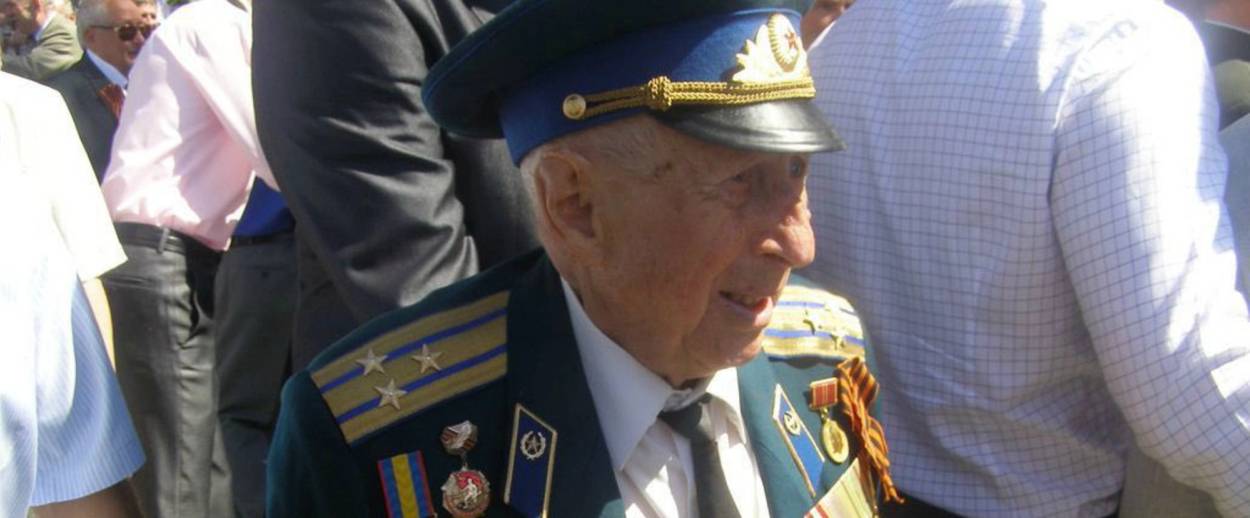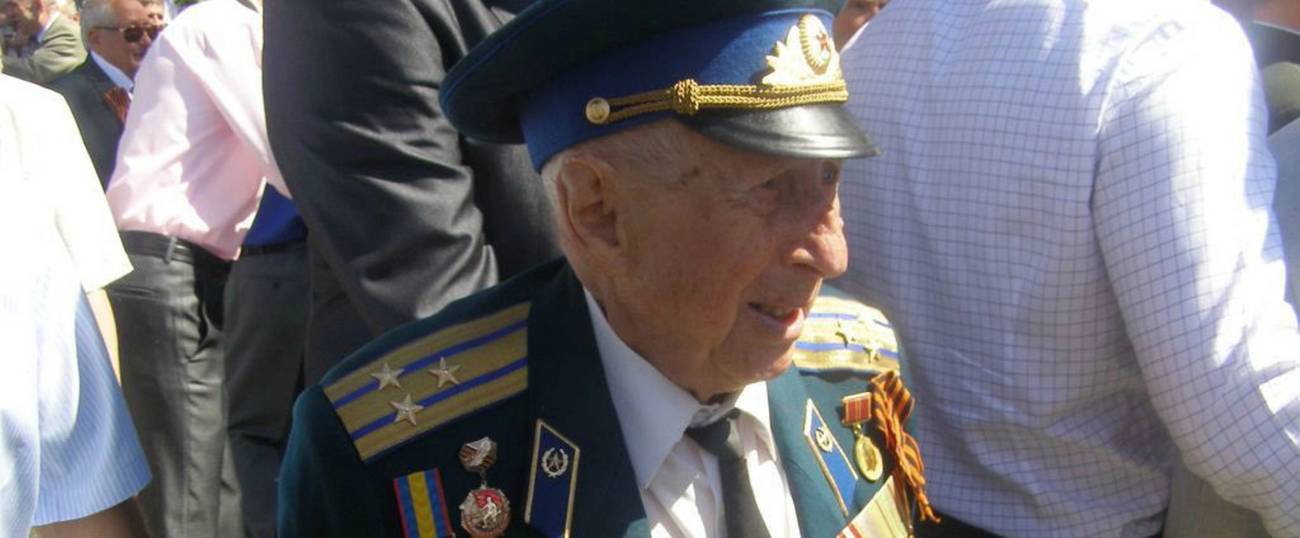Why Is Ukraine Investigating a 94-year-old Jewish Soviet Army Veteran?
The case of Boris Steckler, a war hero accused of killing a Nazi collaborator, is the latest salvo in the Ukrainian government’s memory wars




This week The Guardian reported that the office of Ukraine’s prosecutor general has opened a new murder investigation against a 94-year-old Jewish Red Army veteran and former KGB colonel for his role in the 1952 killing of a nationalist insurgent. The prosecution of former Colonel Boris Steckler is the latest salvo in the historical memory wars of the Ukrainian government’s “decommunisation” campaign, a process that commenced with the Ukrainian parliament hastily passing a package of controversial decommunization laws in May of 2015. The most controversial parts of the new law, which also opened up the KGB archives and outlawed the communist party, enshrined the celebration of controversial nationalist groups who fought the Soviets. Insurgent groups who were bitterly opposed to the Soviet state are now being valorized, and criticism of them is now technically against the law.
The Ukrainian government has launched an investigation into killings in the Rivne region in March of 1952. (The Soviet Union did not put down the last of the guerrilla warfare against Ukrainian nationalists until the early ’50s, in-fighting that cost hundreds of thousands of lives.) The Steckler case centers on the death of the Ukrainian Insurgent Army (UIA) operative Nil Khasevych, who was either killed along with two other men by Soviet forces in a standoff, or who in alternative versions of the story turned his weapon on his comrades and himself. Khasevych was an artist-propagandist and was accused of collaborating with the Nazis during World War II by creating jingoistic posters for the UAI. According to the accused Jewish Red Army veteran, Khasevych was appointed to a judgeship by the German occupation forces and sentenced Ukrainians resisting the Nazis to summary executions. Depending on one’s viewpoint, the UAI was either a group of nationalist heroes fighting for the Ukrainian nation in a dark time, or a group of genocidal fascist collaborators who took part in ethnic cleansing of Jews and Poles in the Polish-Ukrainian borderlands.
The accusations were officially registered by the Prosecutor’s office on April 25 and portend a prison sentence for a decorated WWII veteran, as well as another international level scandal in the ongoing weaponization of world war 2 memory by both sides of the Russian-Ukrainian conflict.
It is important to understand this process as being part of an ongoing trend of glorification of Ukrainian Insurgent Army in post-Maidan Ukraine, motivated in part by the head of the Ukrainian government’s National Memory Institute, Volodymyr Viatrovych. After the Maidan protests, the Ukrainian state chose to take a status quo position on language issues, but decided to take an aggressive stance on memory policy, which remains staunchly controversial between different regions of Ukraine. The case of the nonagenarian Steckler seems to be of particular interest to Viatrovych, and it has been widely said, by The Guardian‘s Alec Luhn as well as by Ukrainian media that he ordered the ‘’state security service to open its files on Steckler.”
This case is the very first of its kind in Ukraine and it is highly improbable that it will be brought to trial, but the very fact of it being raised by the Ukrainian state is in itself extraordinary. Until now defenders of current memory policy have made the case that it was harmless in terms of its actual juridical effects. The prosecution of a decorated red army officer for killing nationalists who collaborated with the wartime occupiers threatens to rip apart social cohesion in a country where significant swathes of the older generation, even if they are pro-Ukrainian and do not harbor pro-Kremlin sympathies, worship the memory of Red Army exploits in defeating fascism. The fact that an elderly Jew, a former KGB officer accused of killing ethnic Ukrainian collaborators with his own hands, was selected to be the first to be prosecuted, plays into traditional eastern European anti-Semitic tropes of the KGB being run by ruthless Jews, as well as buttressing Russian propaganda that the current Ukrainian government is dominated by a Neo-fascist junta.
The prosecution represents a fairly typical, tone-deaf case of Kiev authorities sabotaging themselves and presenting their very worst side to the international community, as well as providing an opportunity for hostile Russians to score points. The prominent Russian news portal lentra.ru led coverage with an article entitled “ordinary fascism,” which maintains that the artist Nil Khasevych has become a sort of cult figure among “certain nationalist circles in Kiev.
The hyper-politicized case comes a week before the celebrations of the Red Army victory over the Nazi occupation forces and likely augurs a heightening of tensions over historical memory at a moment when Ukraine can least sustain them.
Vladislav Davidzon is Tablet’s European culture correspondent and a Ukrainian-American writer, translator, and critic. He is the Chief Editor of The Odessa Review and a Non-Resident Fellow at the Atlantic Council. He was born in Tashkent, Uzbekistan, and lives in Paris.